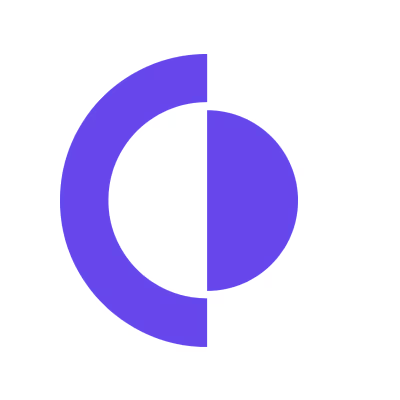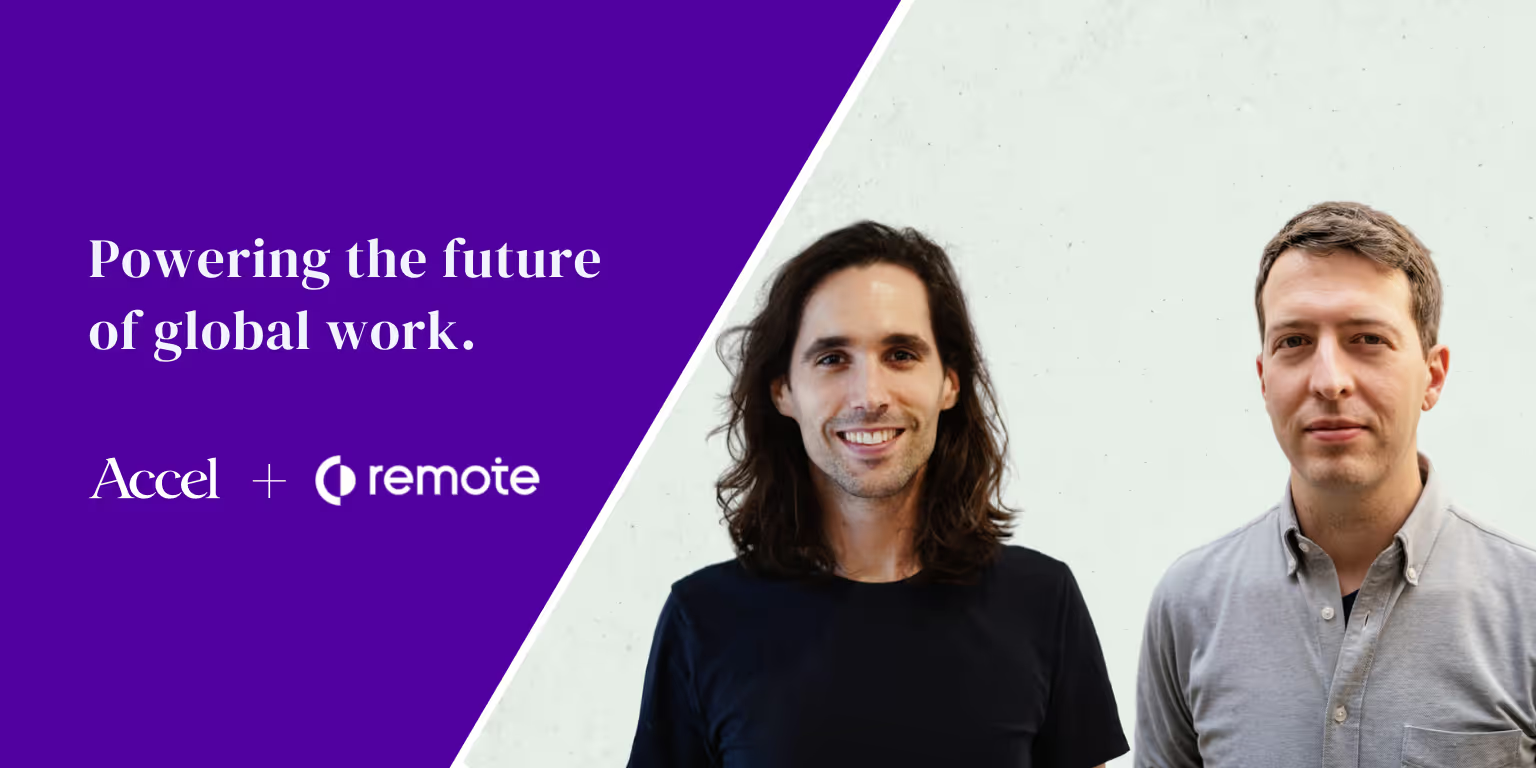Powering The Future of Global Work: Our Investment in Remote

For the last two decades there’s been no technology theme more central to Accel than the globalization of work. We ourselves are international in our footprint, with offices spanning three continents and a team of more than 50 nationalities. More importantly, the companies we work with light up the world map with a lattice of entrepreneurship, spanning geographies like Australia (Atlassian), Romania (UiPath), India (Flipkart), Africa (Instabug), Mexico (Cornershop), Brazil (Nuvemshop) and beyond. So it’s with great enthusiasm that we announce a $150m investment in Remote, the company powering the future of global work.
Remote allows companies to quickly and easily hire employees in different states and countries by solving payroll, benefits, taxes and compliance all in one simple platform. While the theme of distributed work was active long before lockdown, the Covid-19 pandemic undoubtedly accelerated the physical dispersion of workforces. Today the company also announces the launch of is Global Employee API, which will allow leading HR companies like Rippling to embed international hiring directly into its platform, helping customers to compliantly onboard, consolidate domestic and international payroll, and accelerate their global expansion.
Over the last twelve months Remote grew its revenue 65x and its customer base by over 7x, with more than 85% of customers finding Remote organically. But the power of Remote’s mission trumps even the speed of its expansion: with Remote, companies can hire the very best talent that’s suited for them, not just the talent that lives nearby. And for communities globally, Remote democratizes access to the world’s most coveted employers. Founders Job van der Voort and Marcelo Lebre believe simply that the most innovative companies should have access to the most qualified workers, anywhere - borders, tooling and HR admin need not get in the way.

The Full-Stack Approach
Founders Job and Marcelo embrace the full-stack philosophy more whole heartedly than any team we’ve ever met. By definition, full-stack companies control their product experience end-to-end, from the software code to the infrastructure rails to the customer support and everything in between. For example, GoPuff employs its own drivers and operates its own fulfillment centers, enabling it to offer faster delivery times at higher margins than its peers. Similarly UiPath develops its own document understanding technology rather than white labeling 3rd party OCR software, contributing to a superior product experience that helped the company add more revenue last year than its 9 biggest competitors combined. The ditch digging of building full-stack is costly and time consuming but in the long run leads to higher customer satisfaction (because you don’t rely on 3rd parties to serve your customers), better margins and pricing (because you don’t pay fees or commissions to those 3rd parties) and more seamless downstream product extensions (because code plugs in easily to a platform you’ve built from theground-up).
The traditional global payroll model involves aggregating regional payroll bureaus and applying a thin software layer on top to tie together reporting and tax documents - onboarding a new hire takes weeks and your employees are subject to the service outages and customer support shortcomings of the local third party firm. In contrast, Remote fully owns legal entities and banking infrastructure in more than 50 countries, with near-term line of sight to over 100. The app on your phone, the banking entity that funds your payroll account, the admin panel that displays your benefits, and the labor law attorneys and HR specialists on call for your users are all powered by Remote. This enables conveniences like self-onboarding, instant funds transfers, IP protection, and flexible perks and benefits. In the future, it will enable offerings like banking products tied directly into your payroll account, equity management, easy IT provisioning and more. Uniquely, Remote offers this experience whether your global workers are contractors or full-time employees.
The Remote Work Toolkit
Covid pulled forward years’ worth of customer adoption for digital collaboration tools, with winners emerging in a few key categories: team messaging (Slack), visual collaboration (Miro), knowledge management (Guru) remote events (Hopin), and community management (Bevy). Remote underpins this remote work toolkit and will be the foundational component to standing up distributed teams going forward. If you are hiring outside of HQ, opening new geographies or frustrated with your payroll aggregator, Remote can help.
A Payments Future
Payroll represents one of the last pillars off intech to catapult into the digital age. In contrast to the digital transformation of neobanks, point of sale software, online checkout, global remittance, investing apps and beyond, the payroll industry generates $15trillion of volume annually yet 40% of the market is controlled by regional services firms and 25% belongs to companies founded before 1971. The way we work is changing but the way we pay workers has not. Remote re-imagines the flow of funds from employer to consumer and the number of conveniences and services that can attach to that financial relationship. Job and Marcelo’s deep investment in Remote’s payments infrastructure will unlock new banking services for workers globally- envision an employee in Amsterdam working for an American company who wants to take salary in Euros, remit payments in pounds to a family member in London, receive or cash in equity optimized for his/her tax situation, and generate all the necessary tax receipts while minimizing fees.
In Job and Marcelo, we found two talented and inspired founders whose passion for global entrepreneurship matches our own. We’re thankful to be in business with them, and excited to partner with our friends at Sequoia, Index, Two Sigma and General Catalyst to power the future of work.
Great companies aren't built alone.
Subscribe for tools, learnings, and updates from the Accel community.


